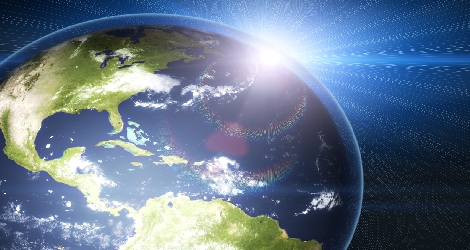 “I thought you might be interested in this.” It was an email from Valentina, a smart Global Studies major who had immigrated from Bulgaria after the Soviet disintegration. She’d embedded a link to Dmitry Orlov’s “Five Stages of Collapse” recalling the Soviet breakup of the 1990s and prognosticating the inevitable collapse of the US economy. It was late 2008, and the markets were in free fall. Orlov’s thesis must have gone viral among Bulgarian immigrants. After one collapse you can read the signs of another.
“I thought you might be interested in this.” It was an email from Valentina, a smart Global Studies major who had immigrated from Bulgaria after the Soviet disintegration. She’d embedded a link to Dmitry Orlov’s “Five Stages of Collapse” recalling the Soviet breakup of the 1990s and prognosticating the inevitable collapse of the US economy. It was late 2008, and the markets were in free fall. Orlov’s thesis must have gone viral among Bulgarian immigrants. After one collapse you can read the signs of another.
It reminded me of the months before 1980’s now fabled People’s Power in the Philippines. I was working at a transit camp for Vietnamese, Lao and Cambodian refugees enroute to the U.S. As tension built towards a Marcos-Aquino showdown, rumors circulated around the camp that the US 7th Fleet, stationed at the nearby Subic Naval Base would evacuate the American staff and refugees. Many Vietnamese had feverishly packed for transit. One collapse can misguide your sense of others.
___________________________________________
If wicked problems have entangled us in this world’s mess, they also indicate what Quaker
Barbara Deming quite simply reminds us: We are all a part of one another.
___________________________________________
This is the first week of Advent [when this article was originally written], and I’ve been thinking about those who have lived and are living through collapses (I think of Syria, Greece, elsewhere). I’m musing about our own times. Are we are in such a global transition? Who can read the signs of the times?
Twenty years ago, Anthony Giddens called high modernity a juggernaut, a force pushing into the future–overwhelming all in its path. Now in globalization circles, we talk about a “hydra headed crisis,” a convergence of economic and financial, security, environmental, governance crises. David Held has argued that we face three core sets of problems:
those concerned with sharing our planet (global warming, biodiversity and ecosystem losses, water deficits), sustaining our humanity (poverty, conflict prevention, global infectious diseases) and our rulebook (nuclear proliferation, toxic waste disposal, intellectual property rights, genetic research rules, trade rules, finance and tax rules). In our increasingly interconnected world, these global problems cannot be solved by any one nation state acting alone.[1]
Continue reading on Ecclesio
Globalization is connected to matters of human rights. Check out Unbound’s issue for Human Rights Day.
Globalization is connected to matters of economics. Check out Unbound’s issue on the American economic crisis.
____________
Notes
[1] David Held, “The changing Face of Global Governance: between past Strategic Failure and Future Economic Constraints,” Social Europe Journal, accessed November 27 2011, see also Jean-Francois Rischard, High Noon: Twenty Global Problems, Twenty Years to Solve Them, (New York, Basic Books, 2002).








